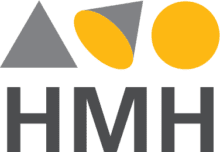Meet All Students’ Needs with MTSS
Watch the RecordingListen to the Podcast
The number of students with significant needs has grown, and schools must address the needs of all students. During the edLeader Panel “Today’s MTSS Classroom: Meeting the Instructional Needs of ALL Students,” experts and school district leaders came together to discuss instructional models to help all students learn.
Dr. Suzanne Jimenez, National Director of Innovation and Insights for Houghton Mifflin Harcourt (HMH), started by discussing how now, more than ever, students have diverse differences in learning styles and needs, meaning that teachers have to teach diverse groups. A Multi-Tiered System of Supports pyramid uses a three-tier system to identify student needs, which HMH modified into a distribution curve model to develop a more nuanced, precise way of looking at and identifying needs and accelerating student learning.
Dr. Jimenez explained how studies showed that in 2021-2022, 67% of students with disabilities spent 80% or more of their day in general education classrooms and that, in 2021, an average of 10% of school-age students in the U.S. were identified as multi-language learners. This means that all teachers, including general education, must be ready to help all students.
John Eisenberg, Executive Director for the National Association of State Directors of Special Education (NASDSE), then shared five issues facing educators, especially in special education:
- There is a nationwide staff shortage at all levels of education
- Students still have the gaps caused by the COVID-19 pandemic
- Chronic absenteeism is rising
- The Department of Education is focusing more on older compliance models rather than student outcomes
- More time and resources are consumed by due process cases
However, educators nationwide are working together to confront these problems. Phyllis Wolfram, Executive Director of the Council of Administrators of Special Education, stated that special educators can contribute to the MTSS framework by collaborating with general education staff to provide early intervention for students, and that their skills can be utilized to help all students. Educators are part of the school community, so the whole community, including special education, needs to work as one, with MTSS as a requirement.
Dr. Jimenez and Julie Weatherly, Esq., Owner of Resolutions in Special Education, Inc., spoke on how resources and strategies can be used across settings. Weatherly stated that excluding certain tools because a teacher feels the skills or tools are only for one type of education over another negatively affects students. Special education is designed to meet the unique needs of students, so educators need to adapt the tools to the needs. And, the law encourages special and general education teachers to use the same tools and adapt the tools to students’ needs.
Traci Hogan, Assistant Superintendent for Special Education, and Scott Rhymer, Assistant Superintendent for School Leadership, discussed how their district, Greenville County Schools (SC), handles special education. They made special education a key part of general education discussions and gave teachers the tools and support to work with and understand special education students. Rhymer added that leaders need to know what to focus on when looking at teachers and classes.
While teachers and administrators must understand the rules and laws, the most important thing is student success. MTSS helped many students until the pandemic brought politics into the classroom, but educators should continue to prioritize student outcomes.
Dr. Jimenez reminded everyone that the goal of teaching is to provide all students with education and skills through strategies and interventions. Each student is unique, so it’s crucial to make the classroom a place where all students can learn.
Learn more about this edWeb broadcast, Today’s MTSS Classroom: Meeting the Instructional Needs of ALL Students, sponsored by Houghton Mifflin Harcourt.
Watch the RecordingListen to the Podcast
Join the Community
Assessment for Learning is a free professional learning community where educators can learn from top experts about effective assessment practices.
The learners of today will shape the world of tomorrow. HMH brings learning to countless students and teachers—transforming lives, supporting communities, and making our society more just and inclusive for all. We offer a connected system of research-backed solutions, where assessment drives instruction and learning can be personalized to meet students’ needs. Our engaging, equity-minded content and customized PD are designed to elevate the potential of every learner.
Article by Jon Scanlon, based on this edLeader Panel






Comments are closed.